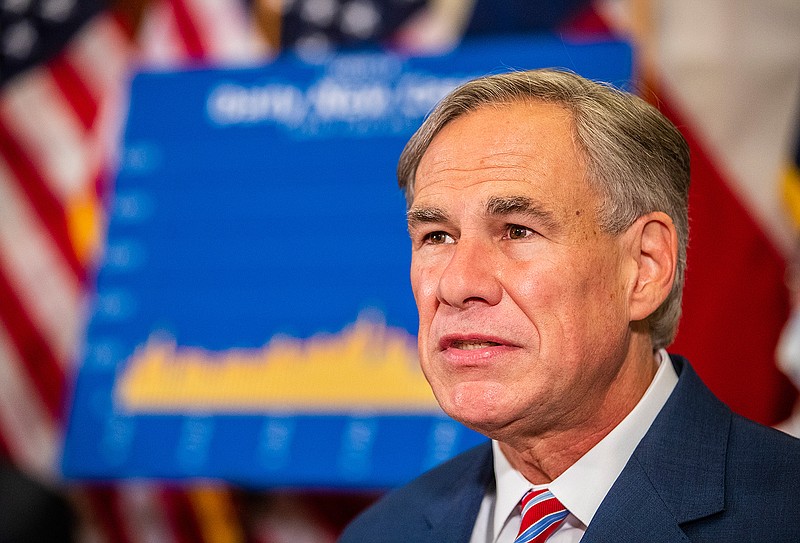Gov. Greg Abbott said Tuesday morning that he is putting a stop to elective surgeries and other procedures in four South Texas counties that are seeing a rapid surge of COVID-19 cases and hospitalizations.
[CORONAVIRUS: Click here for updates and graphics >> texarkanagazette.com/coronavirus]
The latest ban on elective procedures applies to Cameron, Hidalgo, Nueces and Webb counties. Last week, Abbott banned those procedures in Bexar, Dallas, Harris and Travis counties.
"I want to remind all Texans that each of us have a responsibility to help slow the spread of this virus, and I urge everyone to wear a mask, wash their hands regularly, practice social distancing, and stay home if possible," Abbott wrote in a press release.
Statewide, more than 5,900 patients in Texas were hospitalized with coronavirus on Monday, a record-breaking number and a figure that has been going up nearly every day since June 1. According to data from Texas Department of State Health Services, there were 1,411 available intensive care unit beds and 13,825 available hospital beds, but with regional disparities.
The four counties added Tuesday to the ban are the hardest hit by COVID-19 in South Texas. As of Monday, Nueces County had total 1,915 cases; Cameron County had 2,183 cases; Hidalgo County 3,294 cases, and Webb County 1,457 cases.
In the Lower Rio Grande Valley, a trauma service region that includes Cameron and Hidalgo counties, 45 ICU beds were available as of Monday.
On Monday, two South Texas Democrats, U.S. Reps. Filemon Vela and Vicente Gonzalez, asked Abbott in a letter to send National Guard forces in the Rio Grande Valley and shift the troops that are there for border protection to provide medical support. On the same day, Cameron County Judge Eddie Trevio implemented a curfew and closed beaches, given the "exponential rate of people being admitted to area hospitals due to COVID-19."
The city of Laredo, in Webb County along the U.S.-Mexico border, reinstated similar protective measures with currently 69 people hospitalized, including 29 under intensive care, a rise from previous weeks.
Hidalgo County Judge Richard F. Cortez has asked the state to send nurses to support medical staffing.
"We have been monitoring our hospital capacity and have concluded that the medical workers who are working tirelessly in our community could use additional help," Cortez wrote in a release Sunday.
In the Coastal Bend trauma service region, comprising the city of Corpus Christi in Nueces County, only 9 ICU beds were recorded as available on Monday. Nueces County Judge Barbara Canales has asked citizens to stay home through a text message: "Our local hospitals and clinics are strained as hospitalizations rapidly increase," Canales wrote.
Abbott previously issued a statewide elective surgery ban. That one lasted about a month before Abbott eased it in late April, allowing hospitals to resume nonessential procedures under certain conditions, as long as 15% of beds were reserved for coronavirus patients.
Under the current ban, medical procedures required for "a serious medical condition, or to preserve life," can still take place, at the decision of a patient's physician.

